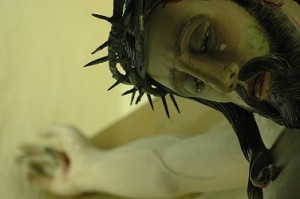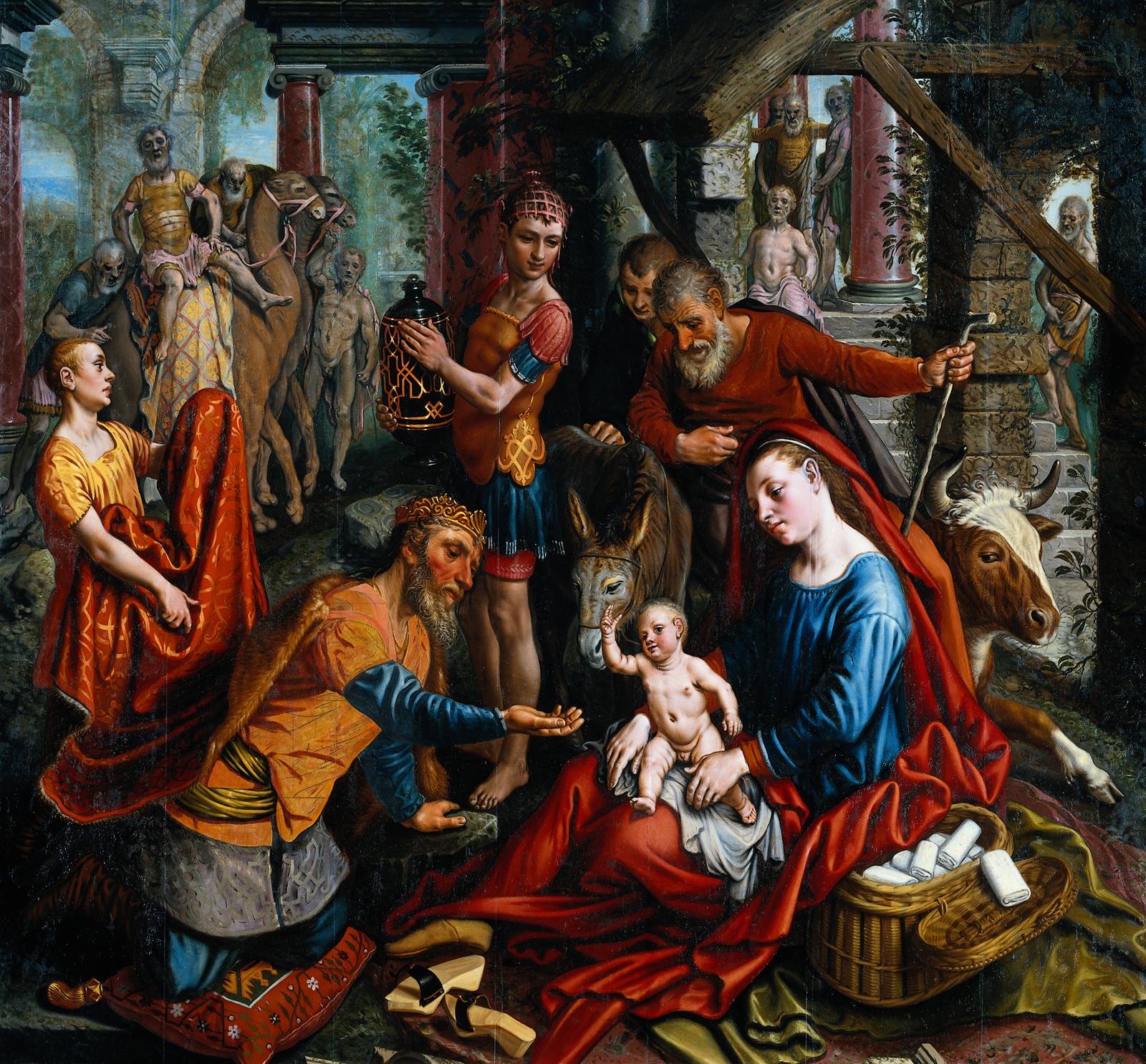
            The religious men and women of Macau celebrated their Christmas Party on December 30, 2011 at six in the evening at the Seminary building. Attended by about seventy religious, the program had spiritual and material dimensions. It opened with the Exposition of the Blessed Sacrament and closed with a fraternal dinner. The Dominican students animated the Exposition with the appropriate liturgical songs.
Right after the Exposition, His Excellency the Most Reverend Jose Lai, DD, Bishop of Macau imparted his Blessing to all present. After the Blessing of our Bishop, we all shared in the fraternal dinner: all religious congregations represented brought food and drinks that were joyfully shared by all.
Within the adoration of the Blessed Sacrament, the well-known expert on the theology of religious life, Fr. Jose C. R. Garcia Paredes, Claretian, reflected meditatively on the Art of Living Together as the art of following Jesus in the Church. (Thereafter, we present the beautiful reflection of Fr. Cristo Rey).
My dear sisters and brothers:
At the end of this year 2011, you, priests and religious women and men come together with your Bishop to celebrate the end of the year and to thank our God for his benefits and to pray for your church. You are a very important part of this local and centennial Church of Macau. You have a strong responsibility regarding the new evangelization, to which Pope Benedict XVI has calling us.
We must to take advantage of today’s feast of the Sacred Family to meditate during a short time on the “art of living together†as Church and community.
The Purpose of this meditation about the art of living is to help us
- Â to be aware of our identity as living beings;
- Â to make sense of our interdependent world and who we are in it
- Â to connect and create on increasingly higher levels and, together, bring the greater lives and world we all envision into reality.
Epictetus was a philosopher, born into slavery about A.D. 55 in Turkey. He was sold as a child and crippled from the beatings of his master. He was freed and established an influential school of Stoic philosophy. Stressing that human beings cannot control life, only how they respond to it. Epictetus dedicated his life to outlining the simple way to happiness, fulfillment, and tranquility. He wrote a very famous book entitled ““The Art of Living: The Classic Manual on Virtue, Happiness, and Effectivenessâ€.
“Don’t explain your philosophy. Embody it.†(Epictetus).
Jesus is, above all, our Master in the art of living, the art of loving (Eric Fromm). In communion with him our passing life is connected with the eternal life, our poor love is connected with the amazing love of the Spirit. The Gospel, the teachings of Jesus, we follow, are the best method to learn the art of living and or loving.
We priests and sisters know very well the philosophy of Jesus! But our main task consists in embodying it!
We are now the body of Jesus Christ in Macau, the visible manifestation of our Lord. We are in Christmas days not because the city is full of lights and music, but because our community celebrates the birth of the Son of God. We are astonished by the amazing mystery of God’s Son becoming flesh. From that very moment of the incarnation everything is different: we are in a new world children of light. All our sins and failures are forgiven. The covenant of God with humanity, with the cosmos, is everlasting; his love for us has no end. The Holy Spirit fulfils the earth. Jesus became a citizen of our planet, a member of our humanity. After his resurrection Jesus ascended into heaven, but his blessing remains with us. He is always “Emmanuel†–God with us- through the Holy Spirit, abiding in our hearts.
We are the Church, -that means, the body of Jesus, the human extension of the Eucharist-. Our life is connected with the eternal life, with the life of Resurrection.
The Bride of Jesus
The Church is the body of Jesus, the Spouse of Jesus. A local Church –like this of Macau- encloses in itself the whole mystery of the Church. You are the beloved Bride of Jesus, but not as individuals, but all of you as a body.
The power of the Church resides in the mutual love, communion, interconnection. Individualism destroys the Church. Our card of identity needs our given name, but also our family name.
The art of living is founded in the art of loving. Love one another as I love you! To be catholic means to be inclusive, and not exclusive, to be ecumenical and not fundamentalist. The power of a Christian community resides in mutual love and communion. By this sign we are recognized as disciples of Jesus.
This is a very common problem in our local churches and community: the lack of mutual love, divisions, confrontations, individualism. Those who love are in the world of light. Those who do not love are in the world of death and darkness.
The mother Church
The Church, as Spouse of Jesus, becomes mother. We call her “mother Churchâ€. This Church of Macau is “motherâ€. This motherhood of the Church is the best gift she receives from Jesus, her Bridegroom. The Church is not called to be sterile. She has received the power of being mother: mother of new Christians, of new vocations for Christian Marriage, for Priesthood, for Religious Life, for an engaged laity. The true Church is a spiritual mother, she gives life, she is generative. Maternity or motherhood is the name of Mission. A missionary Church is a mother Church, who gives birth to new children of God, to new vocations.
My brothers and sisters, we are in Christmas days, in times of birth. Put your hope in the Lord Jesus. He will surely give you new children. You will not be called “sterileâ€: nothing is impossible to God.
The local Church of Macau is a beautiful family of God. In it we contemplate the body of Jesus, the presence of the Spirit. Mary, Joseph teach us the art of living: in the company of Jesus, in loving service to the people, in constant prayer to God.
A living Church manifests her identity in three traits:
- creativity, innovation, generation. We need a culture of creativity in mission, to maintain the fecundity of the Church, birthing new children, new vocations.
- Another identity trait of a living Church is the care of life to those who are in the shadows of death, who do not find the meaning of life, who are hopeless.
- To be a Church is to be interconnected by love, friendship, communion. Alone we are nothing. Together everything is possible.
We finish our meditation with the words of Epictetus:
“Don’t explain your theology of the Church. Embody it.†(Epictetus).
You are, my brothers and sisters the embodiment of the Church in Macau. Through your vocation and ministry the Church is the beloved bride of Jesus and the mother of charity, of faith, of hope. Merry Christmas and Happy new Year!
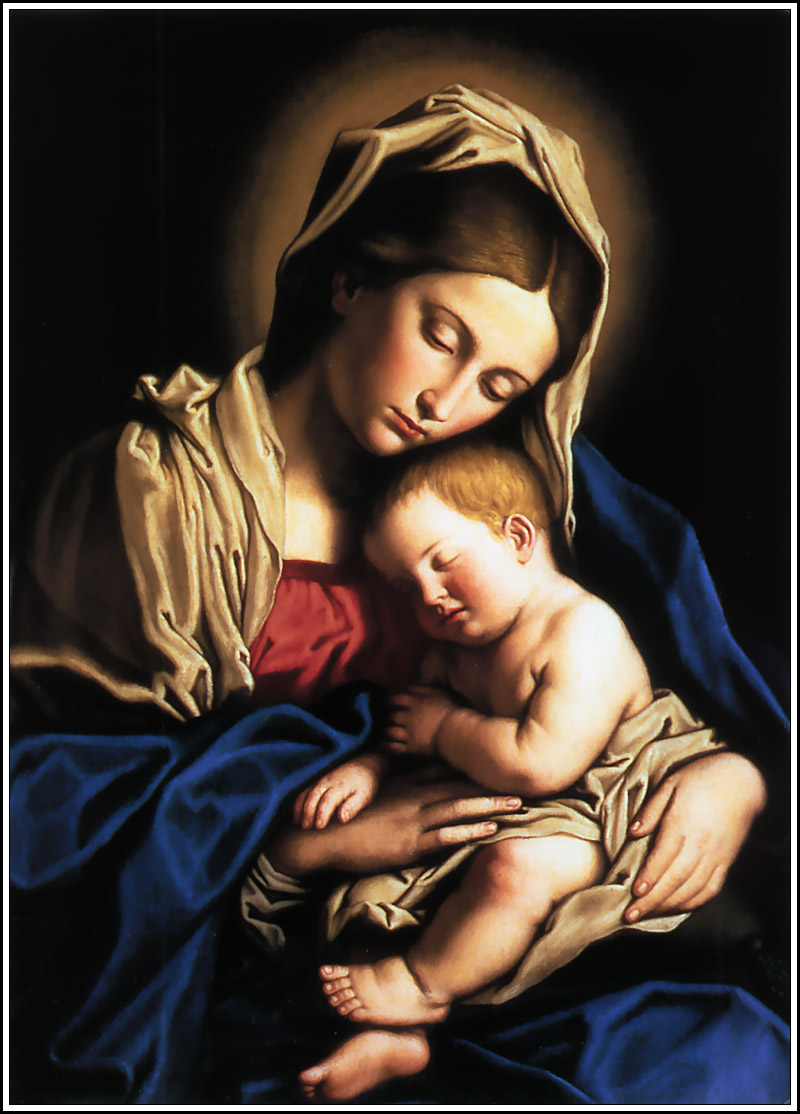
If you are sad, be glad!
Christmas is JOY.
If you have enemies, reconcile with them!
Christmas is PEACE.
If you have friends, look for them!
Christmas is ENCOUNTER.
If there are poor people near you, help them!
Christmas is GIFT.
If you have pride, bury it!
Christmas is HUMILITY.
If you have obligations, fulfill them!
Christmas is JUSTICE.
If you have sins, be converted!
Christmas is GRACE.
If you are in darkness, light your lamp!
Christmas is LIGHT.
If you have errors, reflect!
Christmas is TRUTH.
If you have hatred, forget it!
Christmas is LOVE.
. Unknown Author
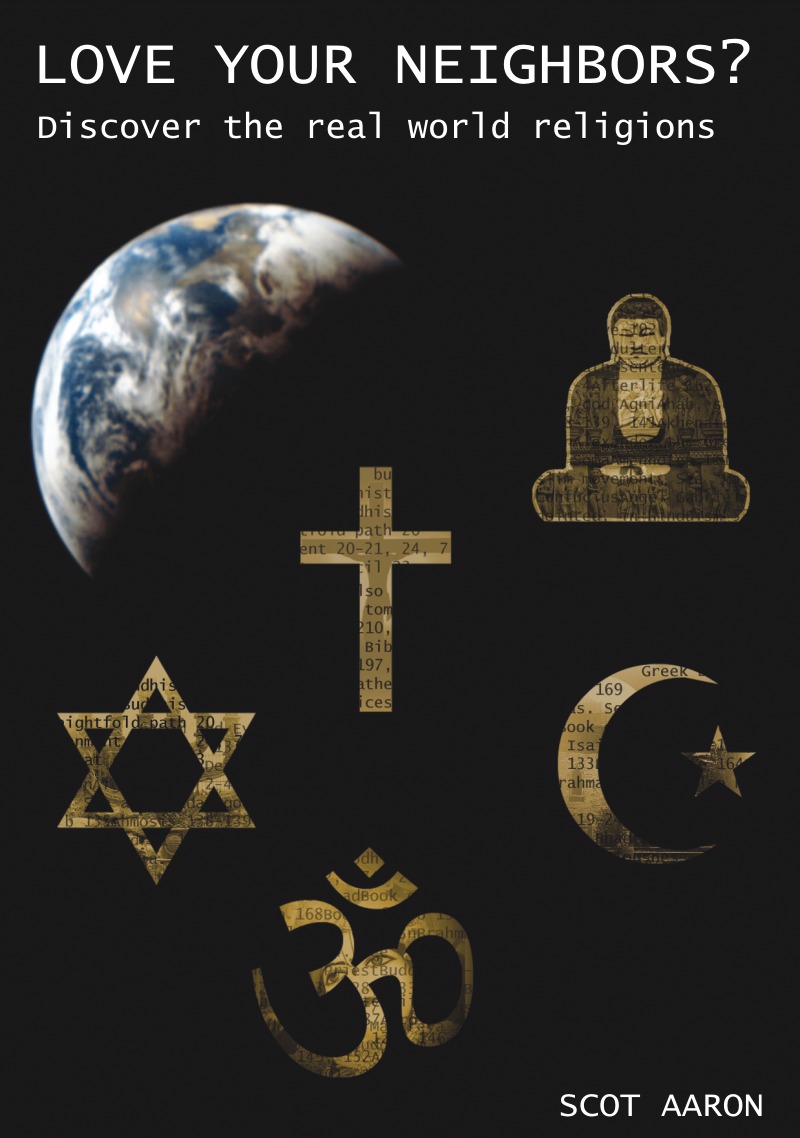
The Pew Forum’s definitive global survey on Christianity shows that the total has quadrupled in 100 years but the demographic is shifting, with the largest concentrations no longer in Europe.
Christians are by far the largest religious group on the planet, and the religion has gone truly global over the past century, according to a new report out Monday, which finds some of the world’s biggest Christian communities in surprising places.
Europe was the clear center of world Christianity one hundred years ago, but today the Americas are home to more than a third of all Christians. In fact, the United States has the world’s largest Christian population, of more than 247 million, followed by Brazil and Mexico.
China also appears on the list of top 10 largest Christian populations – with an estimated 67 million Christians, it has more followers of the faith than any western European country.
There are nearly 2.2 billion Christians around the world, making up about one-third of the world’s population – the same percentage as a century ago, according to the Pew Forum on Religion & Public Life.
Islam is the world’s second largest religion, with about 1.6 billion followers worldwide, the Washington-based organization calculates. That’s just under one-quarter of the estimated 2010 world population of 6.9 billion.
Sub-Saharan Africa has seen the biggest explosion in its Christian population in the past century, going from about 9 million Christians in 1910 to about 516 million today – nearly a quarter of all the world’s Christians. Three of the world’s ten largest Christian populations are in Africa: Nigeria, the Democratic Republic of Congo and Ethiopia.
Article taken from ucanews.com - http://www.ucanews.com
URL to article:Â http://www.ucanews.com/2011/12/20/latest-figures-on-christianity-the-worlds-largest-religion/
“No news from God†reads the catching title of a movie. I am not interested in the movie; instead I am intrigued by its title, which I find dramatic and somehow irreverent, particularly during these days of Advent and Christmas season. That is why I paraphrase it for my 2011 Christmas message.
No news from God!! How distressing if it were true! For distressing indeed is having no news when these are of life and death. And the news from God are of such calibre. The strange thing, however, is the fact that many people around us are neither distressed, nor worried, and nor even bothered about living “without news from God.†Why? Just because they do not see their importance and also, in many instances, because they neither expect them. Sad and tragic, but this is how we are.
And what about us, Dominicans, missionaries, members of Our Lady of the Rosary Province? Do we have news from God? Of course we have. And good news indeed. We have actually accepted a saving message with the commitment even to spread it: the Gospel of Jesus Christ. It is our firm belief that God has been incarnated in Jesus of Nazareth and that through him, His Son, has spoken and saved us. This is good news of Love and Life. That is why there is rejoicing in our hearts and we, deeply grateful, feel the urgency to bring the news to others.
But how to explain the awesome “silence†of God dealt with by Spiritual Theology; a silence that impels people to question God and even leads us sometimes to lose pleasure in prayer?… Doctors of the Church know how to answer: “It is not so much silence on the part of God,†they say, “as rather lack of willingness to listen to Him on ours’.†“For in giving us, as He did, His Son, which is His Word – and He has no other – He spoke to us all together, once and for all, in this single Word, and He has no occasion to speak further.†(St John of the Cross)
Brothers, I greet you this Christmas season with News from God. News that in this time in history He conveys through his Son, his Word made flesh. Let us open then our ears and listen attentively. Let us open also our heart: because messages of Love are heard with it. And if, in spite of all, we still undergo through moments of silence from God… know that it is because “there is no occasion for Him to speak furtherâ€; because He has told us already everything.
Merry Christmas and a Blessed Year 2012!
Fr. Javier
SPIRITUALITY: LITURGICAL SPIRITUALITY:
THE HOLY MASS
            Last Saturday, November 19, 2011, I attended a meditative lecture on the Liturgical Spirituality of the Vatican II Mass, by well-known Benedictine Fr. Anscar Chupungco, OSB. Fr. Anscar had given another lecture the day before on the New English Translation of the Roman Missal: What it is and what it is not. The lectures were organized and sponsored by the Catholic Diocesan Liturgy Commission of Hong Kong. It was opened to all. The Dominican brothers of our three houses (the two in Hong Kong and the one in Macau) were invited as part of their continuing formation program. Brothers from the three houses attended the different lectures. I wish to share some thoughts on the lecture on Liturgical Spirituality.
His lecture was truly a meditative and prayerful lecture. Going through different parts of the Mass, the speaker developed major points, each one fallowed by a long and meaningful prayer recited partly by individual members of the audience and partly by the whole audience. It was a good learning experience for those present. Hereafter, I wish to share with you some points that called my attention and are pastorally significant. These relevant points are: the liturgical assembly, the Word of God, the general intercessions, the preparation of the gifts, the Eucharistic Prayer, and the breaking of the Bread.
The Liturgical Assembly. Vatican II gives particular importance to the liturgical assembly. The liturgical assembly – all the faithful -, is a symbol of the One, Holy, Catholic and Apostolic Church. Christ is present in the assembly made up of saints and sinners, young and old, even perhaps of some enemies that we have to accept and try to reconcile with.
The Word of God. Since Vatican II, the Readings appear more important than before (see Const. of the Liturgy, 50). The Holy Mass is one single act: the liturgy of the Word and of the Eucharist. The Mass is for us the re-experience of Christ’s Teachings and of his Last Supper with the disciples.. Christ is present in his Word, since it is He who speaks (Constitution of the Liturgy, 7 and 33; Hebr 4:12). An interesting point: it does not matter much who reads the Word of God. Through his/her voice, we listen to the message of Christ. Other presences of Christ: in the ordained minister, in the assembly, in the Eucharistic Bread and Wine. (I added in the Open Forum that as it is well-known by all of us, Christ is also present in a special way in the poor. Fr. Chupungco commented, yes that is another – non-liturgical- presence of Christ). What matters – I thought – is not the singer, but the song, not the reader but the message. Another point to note: the full sign of the Cross (composed, as we all know, of three small crosses) before the proclamation of the Holy Gospel: first, we make the sign of the cross on our forehead – to be able to understand the Word; second, we make another sign of the cross on our lips – to proclaim it, and third, we make another sign of the cross on our chest – to be able to ponder the Word in our hearts like Mary.
General Intercessions. This is part of the Liturgy of the Word, which includes the proclamation of the Word, the explanation in the Homily and the response of the people in the general intercessions. It is the family prayer. In it, all priestly people†(the ministers and all the faithful) share in it. It should mainly include the needs of the whole Church and of the world; in particular current calamities and miseries. It is the prayer of the universal Church and, generally, not of individual prayers and petitions (these may be included in a prayer in silence). By the way, the intentions of the Mass could be read at the beginning of the Eucharistic Celebration.
The Preparation of the Gifts. From the first centuries of Christianity, we find bread and wine at the Table of the Eucharist; but at that time and even later on for come centuries the Eucharistic Bread and Wine were not wholly consumed, but some was left to be given to the hungry and thirsty poor. Another interesting detail: why is some water added by the priest to the wine? To remind us all that the Church is the Church of the Poor! We bring bread and wine and other gifts that the faithful present, and offer them to God to be given later to the poor. Thus the Eucharist is real: we offer bread and wine and the other material things to help the poor who need them. In the Prayer that followed we all asked the Lord to teach us to share our blessings with others. Let us add that, as we know, the main theological reason for pouring some water in the chalice with wine is to signify the unity of the divinity and the humanity of Christ, who became flesh, one like us, and also his incredible humility.
The Eucharistic Prayer. It is the center and summit of the whole celebration. Focus: what Christ did personally – and now do through his priests – at the Last Supper. Fr. Anscar said: “’This is my Body,†“This is the cup of my Blood†are the most important words of my whole life. The Blood of Christ reminds us always of the blood of the martyrs, who gave their lives for Christ. “The blood of martyrs is the seed of more Christians.â€
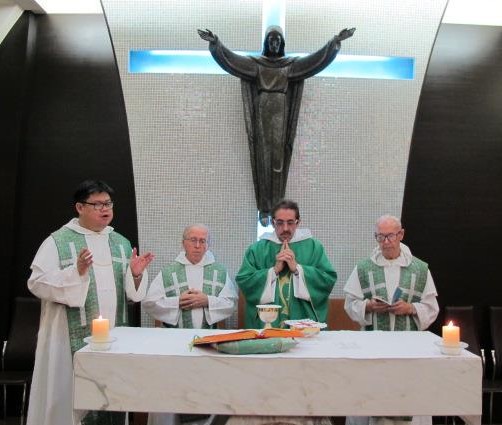
Breaking of the Bread. The bread symbolizes Christ’s violent death. Jesus broke bread to signify his crucifixion (He is ‘broken’ for us!). The priest breaks the Bread to share it with other brothers and sisters. The priest reminds himself that he too has to be broken for the people. The three key words: breaking, sharing, loving. Broken to be shared, broken and shared out of love and for love.
I conclude by adding the following note: understanding the Holy Mass a bit better is always another step to realize in a deeper and deeper way that indeed the Eucharist is – as Vatican II says – the center and summit of our Christian life. No wonder that the first Christians could not live without the Eucharist. In jail, many of these Christians were asked: “Why do you celebrate that ritual when you know that you are going to be taken to jail?†Their common answer: ‘We are Christians, we cannot live without the Eucharist.â€
For the Holy Eucharist, for the Eucharistic Celebration thanks be to God forever and ever. Amen, amen! Â (FGB)
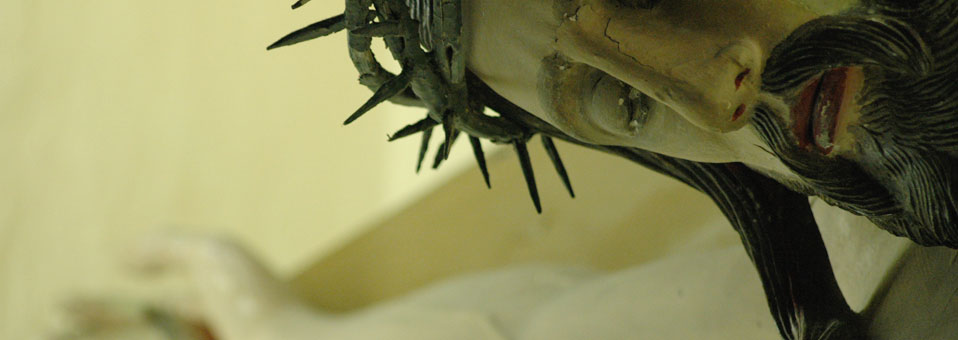
I cannot say “OURâ€
If my religion has no room for other people and their needs.
I cannot say, “FATHERâ€
If I do not demonstrate this relationship in my daily life
I cannot say, “WHO ART IN HEAVENâ€
If all my interests and pursuits are earthly things
I cannot say, “HALLOWED BE THY NAMEâ€
If I who is called by His Name am not holy
I cannot say, “THY KINGDOM COMEâ€
If I am unwilling to give up my sovereignty and accept the will of God
I cannot say, “THY WILL BE DONEâ€
If I am unwilling or am resentful of having Him in my life
I cannot say, “ON EARTH AS IT IS IN HEAVENâ€
Unless I am truly ready to give myself to His service here and now
I cannot say, “GIVE US THIS DAY OUR DAILY BREADâ€
Without expending honest efforts for it
or by ignoring the needs of my fellow man.
I cannot say, “LEAD US NOT INTO TEMTATIONâ€
If I deliberately choose to remain in a situation
Where I am likely to be tempted.
I cannot say, “DELIVER US FROM EVILâ€
If I am not prepared to fight in the spiritual warfare
with the weapon of prayer with His Word.
I cannot say, “AMENâ€
Unless I can honestly say also
“Cost what it may, This is my prayer.â€
